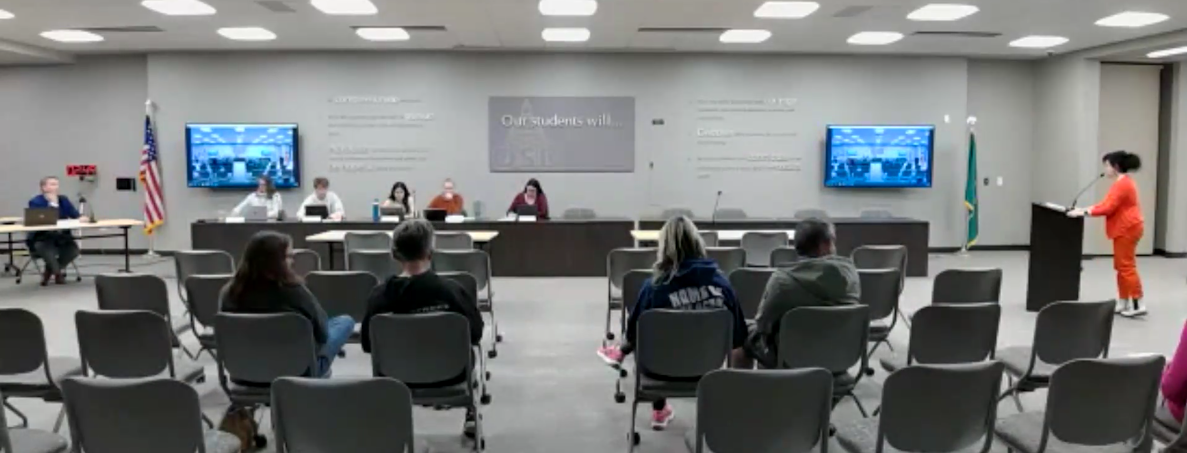In the Olympia School District, the public can engage with officials through the school board’s general board meeting public comment sections; however, some have been kept away by the complexities of signing up to speak.
“Public comment is a cornerstone of democracy,” stated community member Julian Beattie. “It helps the government understand how its proposed decisions will affect the community, and it allows the public to suggest improvements and alternatives before a final decision is made.”
District resident and parent Colette Ketola reflected: “Public comment… is the opportunity for the whole community to have a seat at the table. It means we hold our elected officials accountable and it is the entire community’s time to address concerns or to applaud the hard work of our district.”
“When several [current board members] ran for their seats, they spoke of wanting to increase community engagement. Somewhere along the way… this element… became performative for them. It is one of several ways… this board attempts to demonstrate their understanding of being elected to their positions by the community, while not actually taking their comments to meaningful consideration,” district parent Tara Wickham expressed.
Wickham continued, “Several board members don’t make eye contact with the public commenters, going as far as to be working on their computers while we speak. They also rarely address anything said by a commenter in the meeting that follows.”
“I can remember attending meetings six or seven years ago where a member would acknowledge someone’s comments and ask for district staff to follow up,” recalled Wickham.
“Signing up for public comment is difficult,” Ketola remarked. People “need access to a computer or phone during the working hours of 8:00 am-4:00 pm the day before a board meeting;” and, to “understand how to navigate the OSD website to find the Google form or the phone number to be able to sign up.”
“The meeting’s agenda can be difficult to locate if you are not used to the application and sometimes the agenda is updated between the sign-up period and the actual meeting,” explained Wickham.
Moreover, if the topic they wish to address is not directly related to the meeting’s agenda, the public commenter must sign up for ‘public comment other’ and wait to speak at the end of the meeting.
“The process for signing up feels exclusionary rather than inclusive,” Ketola reflected, and that “it is disappointing that [the board finds] an engaged and dedicated community as a threat rather than the ally [the public is] and can be.”




